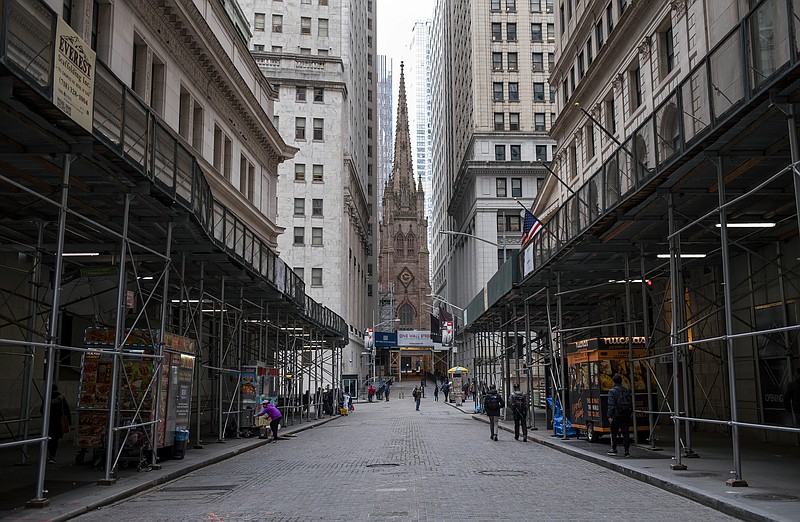[<a href="https://www.newstribune.com/news/health/" style="color:#33AEFF">access the News Tribune Health section</a>]
NEW YORK (AP) - Tarred as villains during the 2008 financial meltdown, banks of all sizes are trying to help out Americans reeling from the economic crisis caused by the coronavirus outbreak.
Banks are scrambling to put into place loan forgiveness and relief programs, working to keep their customers from panicking or falling into financial ruin. They have a vested interest preventing millions of people and businesses from defaulting on hundreds of billions of loans at once, something that would do significant damage to the banks' own finances.
Unlike 2008, banks are not the cause of economic crisis gripping the nation. And banks now have plenty of capital on hand to handle this crisis, economists said.
However, the potential for millions of their customers to default on credit cards, small business loans and mortgages means banks have to do something to protect borrowers, many of whom went from having a job or a business to nothing, sometimes in a matter of days.
Husband and wife team Shari and Larry Kaynen were forced last week to close their chain of six high-end clothing stores called Shari's Place, based in Greenvale, New York. They are now working with their bank to rework their long-term debt into new terms with lower interest rates that will help their cash flow.
Larry Kaynen said their bank is polling all of its retail industry clients to figure out how they are going to stay in business for weeks with "zero" sales.
The aid the bank provides varies in generosity depending on the bank, however. Some are just allowing customers to defer payments, meaning interest is still accumulating while in these programs. Others have instituted forbearance programs, where there will be no penalty for a customer who wants to hold off paying debts for 30 or 60 days.
Huntington Bancshares, a $100 billion bank operating mostly in the Midwest, has instituted 30-day deferral programs for any borrower who asks for help - no paperwork or questions asked - and is reaching out to customers asking if they need more time. They are extending the deferrals 30 days at a time, if necessary.
The bank has even moved employees at its branches into new roles like calling borrowers or potentially even helping customers refinance their mortgage.
The biggest banks are taking similar actions. Bank of America is allowing customers to defer payments across all of its products and is not reporting any negative activity like missed payments to the credit bureaus. So has JPMorgan Chase, Wells Fargo and Citigroup.

